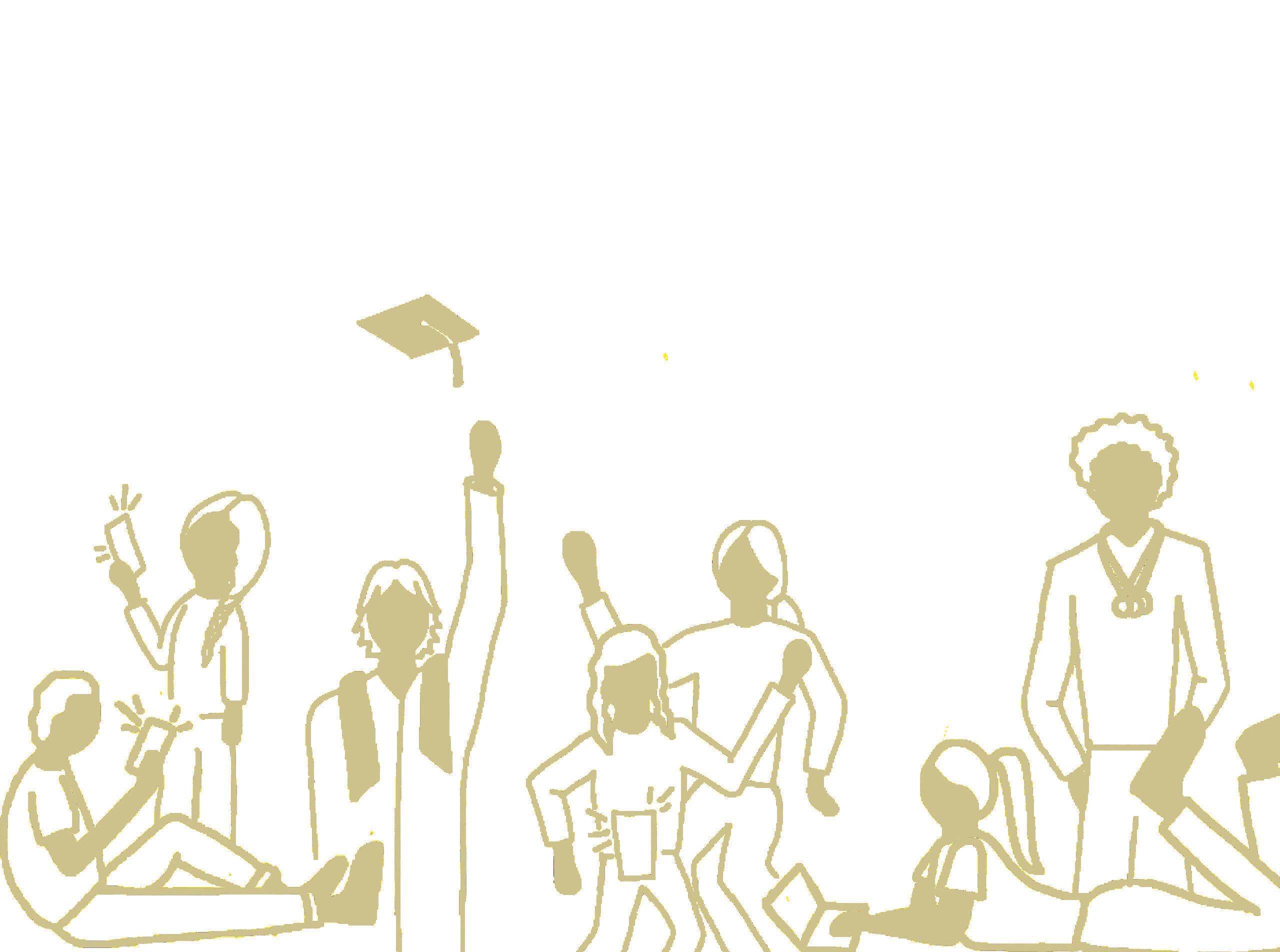
9 minute read
Religious Recession
Generation Z is the least religious generation to date, causing spiritual communities to rethink how they move forward.
Written by Emily Scarvie, Photos by Shyann Montgomery and Julian Croman
Advertisement
Gen Z-ers are choosing a path that differs from older generations’ strongly held religious beliefs. Starting with Generation X (1965-1980), there has been a substantial and continuous drop among those who identify as religiously affiliated—and large religious institutions may be starting to feel the impact.
Over one third of Generation Z (1996- 2012) identifies as religiously unaffiliated; by comparison, only 17% of Baby Boomers (1946-1964) and 11% of the Silent Generation (1928-1945) identify that way. What once was a staple of most households is starting to disappear from mainstream and everyday life.
A couple factors have contributed to this generational trend; let’s break them down. According to the American Enterprise Institute, while 65% of the public agrees that raising children with religion is important for learning good values, the majority of young adults (54%) disagree. Additionally, among young adults who were raised in a religious household, 24% are now unaffiliated entirely.
According to the Pew Research Center, the majority of both Millennials and Generation Z are more likely to have a positive view of interracial and same-sex marriage than previous generations. As our communities expand and people embrace new societal norms, younger generations are more likely to reject institutions rooted in traditions that don’t make room for everyone.
In addition, recent scandals, such as the allegations of sexual abuse in the Catholic Church, have made people—young and old—question the trust and integrity of religious leaders.
So, if Generation Z is the least religious generation yet, how will religious groups sustain themselves long term? FLUX spoke with members of different religious communities to discuss just that.
Kevin Ward, a Catholic missionary for the St. Thomas More Newman Center, serves the University of Oregon campus. Through FOCUS, or the Fellowship of Catholic University Students, he works on outreach and programming within the campus community. Sara Mohamed is the Sister Coordinator for the Muslim Student Association at the UO. She organizes outreach and events, such as tabling for World Hijab Day and discussions on topics like women in Islam. Rabbi Berel Gurevitch of the Chabad Jewish Center of Eugene primarily serves the campus community, often hosting Friday night dinners for students and religious holiday events throughout the year.
Because of each of their connections to the campus community, which is predominantly made up of Generation Z, these leaders sit at the intersection between religious life and the generation that seems to be rejecting it. We discussed the impact they’re seeing on their communities, if they think younger generations are less involved, and what they imagine the future will be like if the trends continue.
Catholic Missionary Kevin Ward
Why do you think that Generation Z is less involved in organized religion than older generations?
“I really do believe that young people haven’t started caring less; they’ve just kind of fallen asleep to the fact that they care. Maybe institutions have let them down, so it’s easier to just say they don’t care. I really do think the largest religion in the world right now is ‘I don’t care.’ You put your faith in these presidential candidates or political parties and they let you down, or try to put your faith in God and church leaders do terrible things. I think it definitely hardens the heart and causes people to think ‘Why should I care so much if I’m only going to get hurt by these people?’”
What is the response you typically see from Generation Zers (either on or off the UO campus)?
“The outreach on campus can be kind of cold, and you know, we’re not trying to trick anybody. But when they hear we’re missionaries, that seems to come with connotations of ‘Oh, this person just wants me to join their religion.’ A lot of what we learn as missionaries, and that I believe to be true, is that we have to earn the right to be heard, and that’s just not something you can really do by just being out on campus and preaching about your faith. It’s not on me to try to twist them into conversation or twist them into learning my perspective. I’ve found that honest conversations with people, whether it be on campus or through connections in the church, are more effective.”
What do you think is the future of organized
“I think it has a bright and shining future, I really do. I feel like it’s here to stay. I’m not sure what it’s going to look like in America specifically, but you see the Catholic Church exploding in a place like Africa; it’s huge. The Catholic Church is dying in Europe where the Vatican is, where the Pope is, where these huge churches have been erected for God find themselves. I can’t say for all religions, but I think religion itself is always going to have a place. I don’t think you can stamp it out, because as long as people are asking ‘Who is God?’ and ‘Who am I?’ religion at least tries to tackle those questions, regardless of how well they do or don’t do it.”What is the response you typically see from Generation Zers (either on or off the UO campus)?
UO MSA Coordinator Sara Mohamed
Why do you think that Generation Z is less involved in organized religion than older generations?
“I think as we grow up everyone finds their own way to distract themselves. I think religion has become more like reading; libraries now are less occupied by young people and more occupied by the elderly. So, I think religion is kind of the same. Elderly people are more interested in it. For most of our events on campus, older non-students show up. Elderly people aren’t interested in social media like we are, so they have more time to focus on themselves and read more; they grew up with that. Young people aren’t doing that because of social media and activities other than religion.”
What is the response that you typically see from Generation Zers (either on or off the UO campus)?
“Many Christians come to our events, especially people who are not from the university, which is surprising because I thought more students would be interested in this. So far I’ve only witnessed one bad response from the community. Someone tweeted about an event we were holding on women in Islam, saying we couldn’t have the event and insulting our prophet. It was hurtful but made me even more enthusiastic about what I’m doing. It makes me want to teach other people and look for more ways to spread that information, so they know what’s the correct information and what’s wrong.”
What do you think is the future of organized religion in the era of weakening religious affiliations?
“I think it will change at some point. I’ve seen people posting things about believing in God and believing in destiny. So, that kind of gives me hope that people will go back to reading more about religion and educating themselves. I think once they find their way to educating themselves, they’ll find a way to go back into religion, because it’s all connected.”

Pictured: Sara Mohamed
Rabbi Berel Gurevitch
Why do you think that Generation Z is less involved in organized religion than older generations?
“I can only speak from my experience, and the people I’m in touch with are more involved than I thought, so I’m not finding that experience as much. I feel like when you do a survey, it’s a language game; it’s all about how the questions are asked. Do people believe in God? Well, no one wants to have a connection to a sad, static, boring religion. But when they’re exposed to a happy, lively, organic, true situation, it’s a whole different experience. Judaism believes that every person has a spark that wants to connect, and what I try to do on a daily basis is help people connect and uncover that spark and help them along in the process.”
What is the response you typically see from Generation Zers (either on or off the UO campus)?
“I’ve found that people are very interested, and as soon as they are exposed to a proper conversation and mature their understanding of what Judaism is and what religion is and what God is, many times people gravitate towards it and grab it; it’s very deep and it’s very real. The statistics seem high, but what I’ve found is that as soon as you are able to hear people out and have a conversation with them, and they hear something through it, it becomes a whole different experience. People grab it and they love it.”
What do you think is the future of organized religion in the era of weakening religious affiliations?
“Things are a lot better than it seems. We don’t base our mission statement on surveys or questions; we have a very true product. We bring it to people and it’s always successful, all around the world. It doesn’t change based on the city you’re in, the age you’re dealing with, or the culture they’re in. Judaism believes that every single action is extremely powerful and has eternal value and that’s what we try to help people with. There’s no finished product, we’re not trying to get anywhere; every day we’re just trying to serve God and be the best person possible. It could get depressing if I spent my time looking at surveys, but it’s not as bad as surveys make it out to be.”

Pictured: Berel Gurevitch










